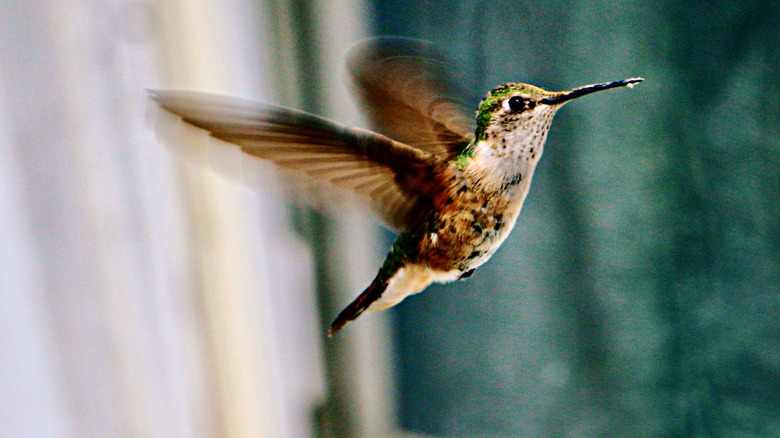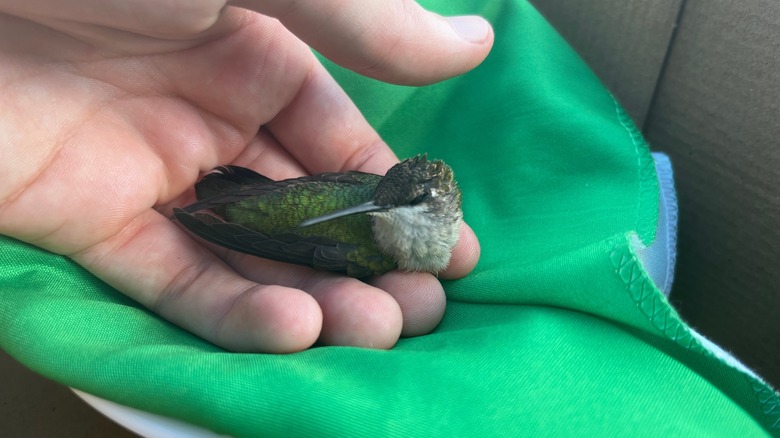How To Remove A Hummingbird That's Trapped Inside Of Your House
Hummingbirds are one of the most beneficial birds you want in your yard. They're not only effective pollinators, but they can get rid of some insects in your garden, bring beauty to your outdoor space, and are fun to watch as they zip and zoom around outside. One downside of attracting hummingbirds to your garden is they can occasionally get trapped in your house. All it takes is opening the door or window at the wrong time and you have a problem that could be fatal to your wildlife friend.
These little birds eat at least every 15 minutes, so if a hummingbird is trapped in your house, time is of the essence. While you want to work quickly, stay calm and don't try to chase the bird around to catch it. Hummingbirds are notoriously fast — way faster than humans — so you'll likely harm the little creature if you attempt to trap it. Instead, your first step is to carefully close your inside doors, confining the hummingbird to one room, turn off any fans, and keep your pets out. Once you've done that, the next step is to create an environment that will encourage the hummingbird to leave.
Invite the hummingbird outside
To coax the hummer outside, open the outside door and any windows in the room. Remove the screens and shut the blinds over any parts that are not an avenue to your yard. Also, turn off any inside lamps and such so the only light is coming from outside, and cover any bright objects in your home that might catch the hummingbird's attention. Anything that matches the color of flowers that hummingbirds absolutely love could confuse the bird, keeping it inside longer.
If you have a hummingbird feeder or a potted flower with bright blooms, place it near the open door or window to encourage the hummer to just fly out. Then, wait. It might take a little time for your visitor to figure out where to go. Since hummingbirds need to eat so often, it shouldn't take long for the bird to take flight and go for the only source you've provided. However, if the hummer is panicked, injured, remains in your home for an extended period, or exhausts itself from trying to leave, it might be time to ask for help.
Saving your visitor and next steps
The process of freeing a hummingbird trapped inside your home assumes the bird is healthy and able to fly. If it's been too long between feedings or the hummer sustains an injury, that's a different story. If the bird has fallen or is reluctant to fly, that's a good indicator that it needs some help. Contact a wildlife rehabilitator for the next steps in caring for the little creature. If you have trouble finding the right place, The Humane Society of the United States is a great resource to find a professional rehabilitator near you. That person will either have the knowledge to instruct you or will direct you to someone who can assist.
Once the hummingbird leaves, be sure to take some steps to try and discourage any more of its friends from flying into your home. You want to keep feeders and any flowers or colors that might attract hummingbirds away from your house — especially your doors and windows. Also, make sure to keep your doors and windows shut when not in use and your screens free of holes. While they're probably not intentionally trying to enter your home, hummingbirds are naturally curious, so it's best not to give them an opportunity to get inside.


